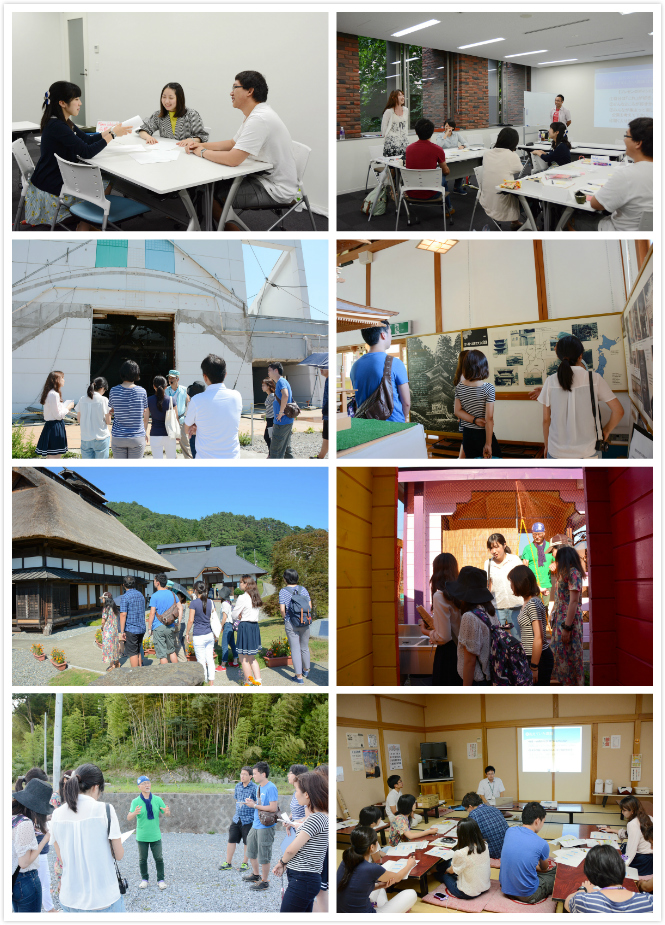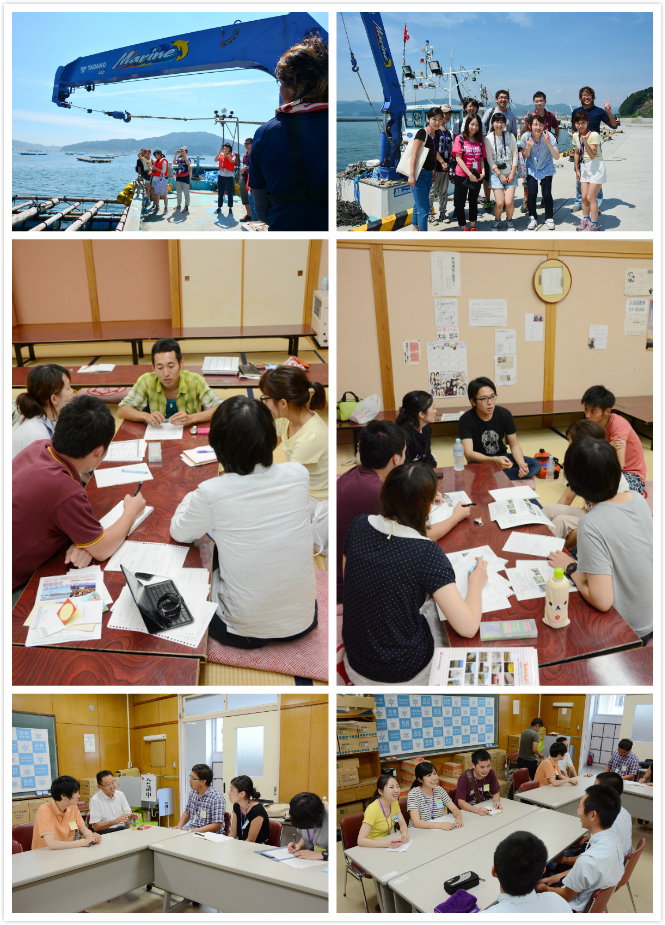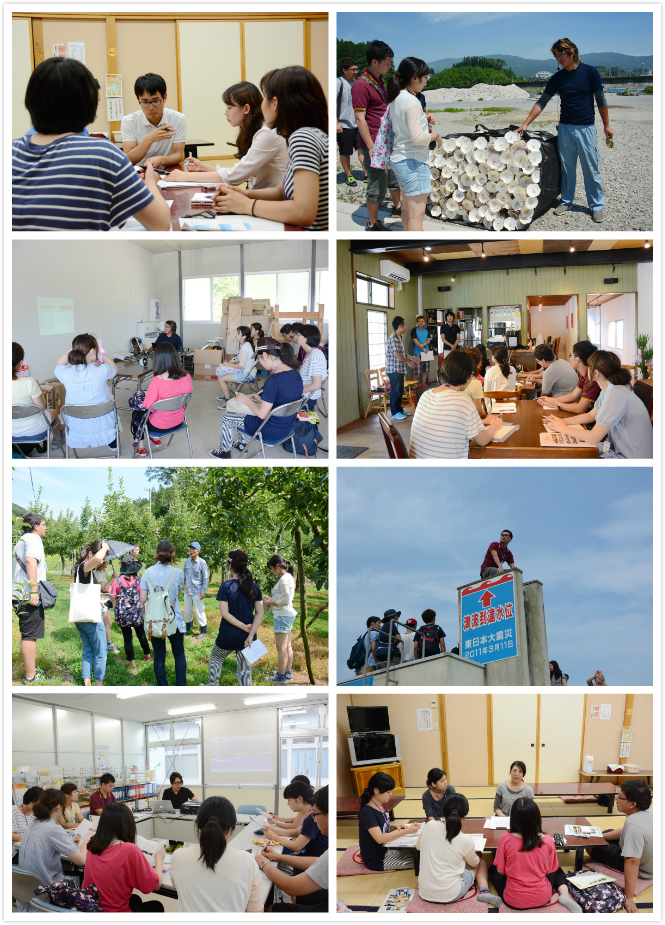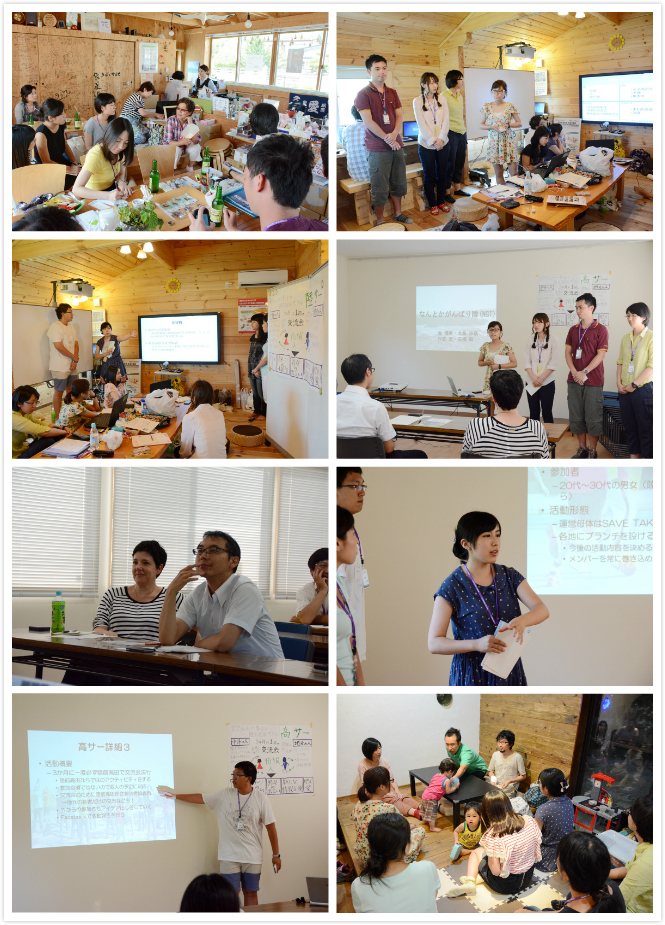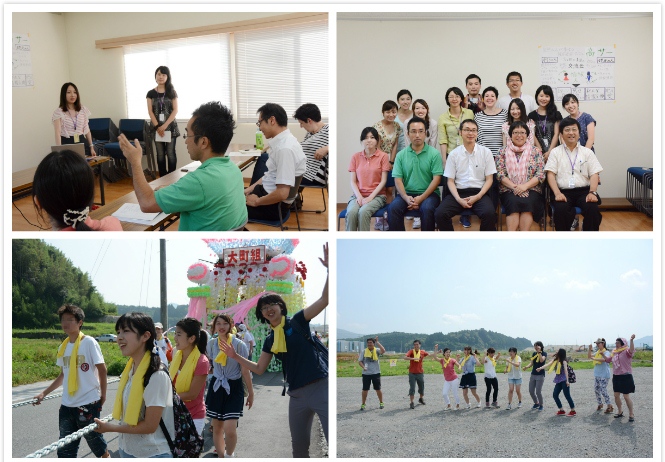ニュース
September 10, 2014
Rikkyo University Held PBL Program in Disaster-Struck Rikuzentakata
--Japanese and International Students Worked with Social Enterprise in Support of 311 Recovery Efforts
The Center of Global Human Resource Development of Rikkyo University has just hosted a 5-day field trip from August 3rd to 8th as part of a Project-Based Learning program to support 311 recovery efforts in one of the most seriously hit cities Rikuzentakata in the north-east region of the country.
9 program participants including 1 international student were divided into two teams and assigned with a task by local social enterprise SAVE TAKATA to come up with a plan to “create opportunities for young people in Rikuzentakata to communicate”. Under the instruction of Ms. Akiko Takai, Deputy Secretary General of Save the Children Japan, an expert with extensive experience on humanitarian assistance and disaster recovery aids, students studied about the 311 disaster and did some preliminary research for the task in prior sessions across July and August for 3 days before leaving for Rikuzentakata.
During the 5-day field trip, students were able to grasp first-hand information of the current situation in disaster-struck areas as well as deepening understanding of various issues facing recovery efforts through city tour, dialogues with local residents including high school students, and workshops with representatives from city hall, NPOs, local businesses and etc. After days of heated discussion and late-night group work, students managed to come up with two proposals and presented their ideas on the day of August 6th to SAVE TAKATA and other guests including Deputy Mayor of Rikuzentakata.
The next morning, students joined the legendary local Tanabata Festival and pulled the float with residents and volunteers from all over the country. Reflection session was held the day after all participants returned to Tokyo.
Rikkyo University’s long-term connection with the city of Rikuzentakata was established years ago and has been largely strengthened since the East Japan Great Earthquake in 2011, which was highlighted by the signing of Collaboration and Cooperation Agreement in May, 2012. This PBL program is one of the many projects that Rikkyo implements in support of the city’s recovery efforts, echoing the local voices that the catastrophic disaster should not be forgotten and the message should reach out to more people both home and abroad.
Participants’ Voices
Through the program, we were able to meet the people in Rikuzentakata and see the beautiful nature-rich countryside of Rikuzentakata, an experience that can’t be acquired by only watching TV or reading newspaper. That, together with the opportunity to work with peer students from all years and different departments of Rikkyo, is one of the best things about joining the program. As a citizen of Japan, I always thought that I should learn and think about the 311 disaster more. Thank you for providing such a valuable chance for me to do so.
(Momoko Ishio, College of Business)
I’ve always wanted to visit Tohoku of Japan, to see the beautiful sea and meet the friendly people there. I learned (when I was still in China) that the region was hit and devastated by a catastrophic earthquake and tsunami. Three years passed and here I am in Japan, I would like to do something for the people there if possible. That’s why I joined this program. In the program, in order to achieve our goal, each of us actively took part in group discussion and field work, talked with people from all walks of life and gathered information on related topics. It was not only a precious learning experience for me, but also a big challenge to test my language skills and way of thinking.
(Hanzhong Zhang, international exchange student from College of Arts)
This is the first time that I visited Rikuzentakata. My first impression was like: “Was this city really hit by the 311 disaster?” Honestly, it is difficult to learn about the disaster just by looking at what is left of the city right now. However, after meeting and talking with many local residents, I was able to learn the fact that 3 years after the disaster, the city is still struggling from recovery and is making little progress. I would like to share what I learned in Rikuzentakata to people outside, because through the program, I came to understand that if we are willing to know more about the disaster-hit areas, it will not only help to keep the memories of the disaster from fading, but also increase our disaster-prevention awareness.
(Yujin Kim, College of Law and Politics)
